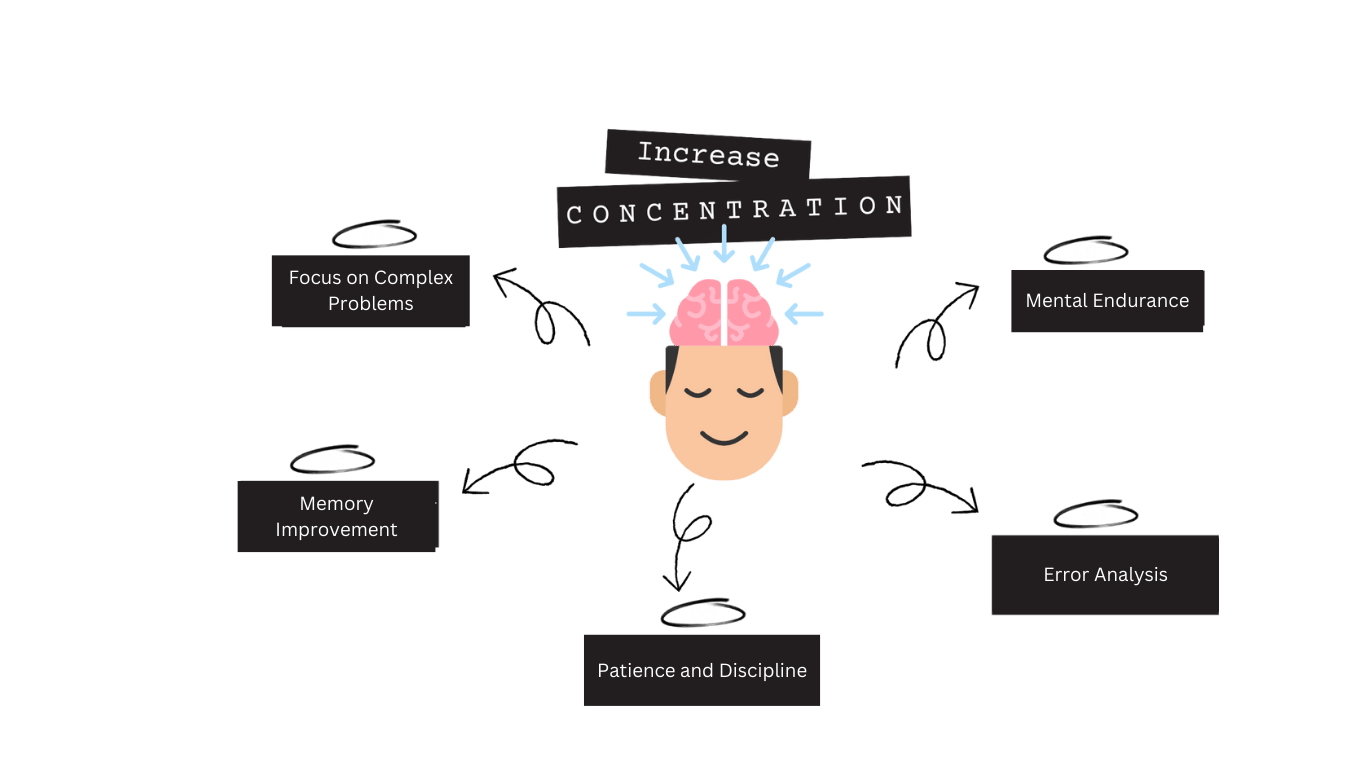Increase Concentration
Improved concentration can significantly enhance various aspects of life, leading to greater productivity, better mental health, and overall well-being. Here are some important points on how to increase concentration while playing Chess.

1) Focus on Complex Problems:
a) Deep thinking: Chess requires players to deeply consider each move, anticipating not only their own actions but also predicting their opponent's responses. This critical thinking helps in developing the ability to focus on complex tasks for extended periods.
b) Strategic Planning: Players must develop strategies and consider multiple variables simultaneously, which trains the mind to maintain focus on complex, multi-step problems without getting distracted.
2) Memory Improvement
a) Remembering Patterns: Chess involves recognizing and recalling specific patterns, opening sequences, and endgame strategies. This practice enhances memory, which is closely linked to concentration.
b) Visualizing Moves: Players often envision potential moves several steps ahead, enhancing their ability to focus on abstract tasks.
3) Patience and Discipline:
a) Delayed Gratification : Chess teaches the value of patience. Success often depends on waiting for the right moment to execute a plan. This patience is critical for improving concentration as it encourages a disciplined approach to tasks without succumbing to
b) Handling Pressure : Chess games can be intense, particularly in timed matches. Learning to remain calm and focused under pressure can enhance concentration in other high-stress situations.
4) Error Analysis :
a) Learning from Mistakes : After every game, players usually review their moves in order to spot mistakes and learn from them. This self-reflective practice promotes deep thinking and attention to detail, both of which are crucial for focus.
b) Critical Thinking : Players engage in critical thinking by constantly assessing the board and evaluating the best moves, which sharpens their problem-solving skills.
5) Mental Endurance
a) Extended Focus : Chess games, which can last for hours, require sustained mental effort, helping to build mental endurance and making it easier to concentrate on long tasks in other areas of life.
b) Attention to Detail : Success in chess often depends on noticing small details, which can have significant consequences. This attention to detail translates to improved concentration skills in everyday tasks.
